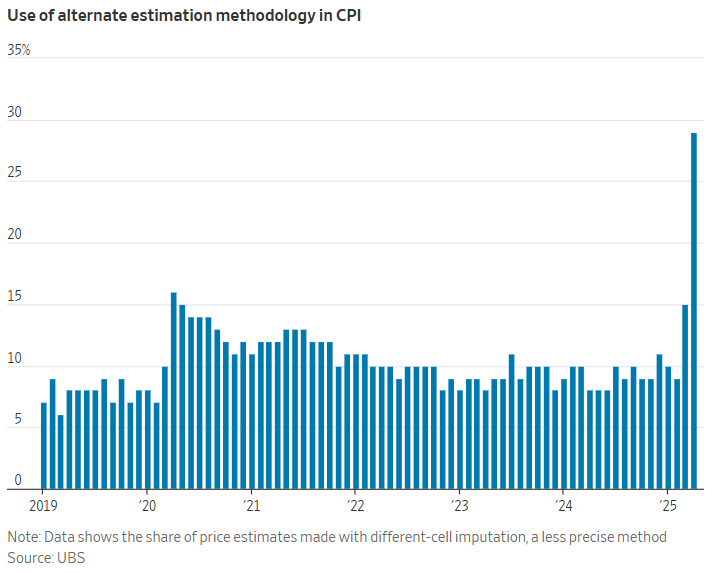Podcast Episode Details
Back to Podcast Episodes
The CPI/PPI Data Crisis: A Case for Digital Transformation
One of the biggest reasons Americans feel pessimistic about the next generation's prospects is our mounting national debt and structural deficits—and the very real threat they pose to the dollar's purchasing power through inflation. Understanding and accurately measuring inflation isn't just an academic exercise; it's fundamental to preserving American prosperity and ensuring we can address these fiscal challenges before they become existential ones.
Which makes yesterday's Wall Street Journal revelation that the Bureau of Labor Statistics has been forced to cut back on price data collection due to staffing shortages from the Trump administration's hiring freeze all the more concerning. In 2025, this antiquated approach reads like something from a bygone era. In 2025, when companies like my sponsor Truflation tracks millions of price points, many from sources with daily updates, the idea that America's critical inflation statistics depend on "hundreds of workers into retail stores across the country to gather thousands of prices" seems almost quaint—if it weren't so economically dangerous.
The Scope of the Problem
The numbers tell a stark story. Nearly 30% of price data in April's report used imputation techniques—double the normal rate—because the BLS suspended data collection entirely in cities including Lincoln, Nebraska, Provo, Utah, and Buffalo, New York.
The agency has lost about 15% of its personnel since the beginning of the year, forcing economists to rely on estimates based on loosely related products or different regions.
Consider the absurdity: the most important economic statistic in America—one that determines Social Security adjustments for tens of millions of recipients and influences $2 trillion in inflation-adjusted Treasury bonds—now depends on whether the government can hire enough people to physically visit stores and manually record prices.
The Digital Alternative Already Exists
While the BLS struggles with a 20th-century approach to data collection, private companies have already solved this problem. Truflation demonstrates what's possible with modern technology: over 13 million prices of goods and services compared to traditional indexes which track roughly 100,000 items, with data updated 30 times faster than current measurement tools and leveraging census-level data with a minimum of 3 data sources per index.
The contrast is striking. Where the BLS requires an army of workers to manually collect a relatively small sample of prices, digital platforms can access millions of real-time pricing data points automatically, with built-in redundancy and verification systems that eliminate human error.
A Bureaucratic Plea for Protection?
The timing and tone of yesterday's revelations raise questions about whether this represents genuine concern about data quality or a strategic appeal for bureaucratic protection. The WSJ article's warning about "major implications for the economy" from what amounts to a staffing shortage feels disproportionate—particularly when the BLS itself admits the cutbacks "have minimal impact" on overall inflation data.
More telling is the apparent uncertainty about whether BLS employees were even subject to the hiring freeze. The White House could continue to extend the freeze indefinitely, yet the BLS and its parent agency, the Labor Department, didn't respond to requests for comment. This silence, combined with the dire warnings about economic consequences, suggests an agency more focused on preserving its methodology than improving it.
The Real Implications
The true "major implications for the economy" aren't from temporary staffing shortages—they're from an inflation measurement system so antiquated that it can be derailed by a hiring freeze. In an era where Trump's sweeping tariffs are being closely watched for their impact on inflation, having unreliable or delayed inflation data isn't just inconveni
Published on 3 months, 1 week ago